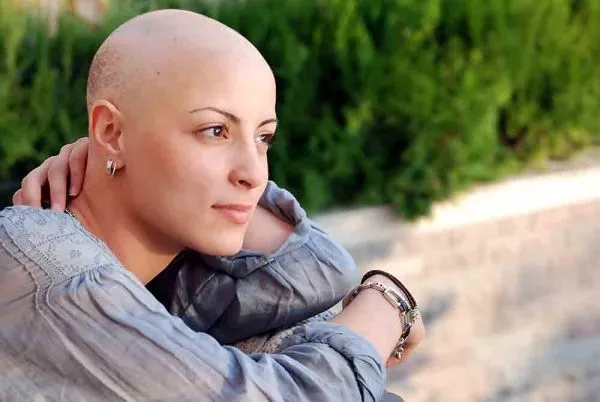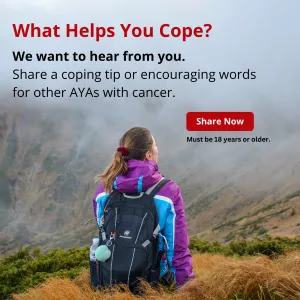What Are the Unique Challenges Brain Tumor Patients and Survivors Face?

Brain tumor patients and survivors face an array of unique challenges that often affect them for the rest of their lives. Along with spending several years in the brain cancer world as a patient and survivor, recently, I spoke with several oncology social workers about the challenges brain tumor patients and survivors face. I came away with a renewed understanding for the impact of a brain tumor diagnosis.
Many of us have heard the statistics, and know how life-threatening these tumors can be: more than 23,000 people in the United States will be diagnosed with brain cancer in 2018, and only about one third of them will survive past five years. Although surviving treatment and being cured of a brain tumor are surely a cause for celebration, many people do not recognize that for those who do survive, life is forever altered by the experience and the challenges they will continue to face.
During Brain Tumor Awareness Month, I spoke recently with clinical social worker Kate Shafer, who has worked for almost three decades in the cancer world, much of those with adolescent and young adult (AYA) brain cancer patients. When asked about the challenges faced by survivors, she spoke about the physical, social, and cognitive barriers faced after the “assault to the brain” of surgery, chemotherapy, and/or radiation. These patients are “less likely to live independently” and struggle to attain “an age-typical social life,” to go along with “academic struggles” and under or unemployment.
What’s more, according to Shafer, there are ample physical struggles, including recovering the balance needed to move, and cognitive deficits in executive functioning, memory, and emotional regulation. These challenges create a great need for support services apart from medical treatment.
In addition to the clinical factors that affect these individuals, there are more macro ones that make living a healthy, productive life very difficult. Shafer highlights that when patients have multiple doctors (from different types of medication to rehabilitation), it is “easy to become lost in the system, as the coordination of care among medical professionals is often lacking.” And as a nation, Shafer says, the future uncertainty of medical coverage by insurance creates further reason for concern.
I also spoke with Stacia Wagner, MSW, who works with and researches AYA brain tumor survivors. She reported many of the same difficulties faced by brain tumor patients and survivors as Shafer. However, she added that mental impairments in cognition, social skills, and general mental health prevent many survivors from being successful in multiple facets of life, particularly in life stage transitions and professional life.
Compared to other cancer survivors, “brain tumor survivors are five times as likely to be unemployed,” Wagner says. And socially, according to Wagner, brain tumor survivors tend to struggle with integration into their community and dating, often due to a lessened ability to control their emotions and impulses.

One AYA survivor I came to know experienced many of these challenges. While his peers continued to pursue their educations and careers, he was held back years after treatment by mental health struggles and lasting cognitive deficits from treatment’s assault on the brain. Even though he was able to finish his college degree, he still struggled socially and professionally, losing much of his friend group and mostly unable to maintain employment. It was clear that he continued to struggle for years after treatment, much like the trends discussed by Wagner.
Fortunately, brain tumor survival rates are increasing, and according to Wagner, this results in a higher demand for professionals to help survivors develop the skills needed to succeed in adult society.
As for the rest of the adult brain tumor community, their diagnoses are very disruptive and debilitating as well. I spoke with oncology social worker, David McGinness, and nurse Vera Hirschman, about the challenges this group faces. They said that treatment of brain tumors robs adults of the ability to function in daily life, as “speech, motor skills, and emotions” are often severely or even permanently damaged.
These patients and survivors also suffer a “loss of independence,” as driving is usually not an option, due to impaired cognition and/or vision. They emphasized the compromising nature of a brain tumor prognosis, as it “affects the essence of you.” Despite this, they were optimistic about new therapies for brain tumors, as well as “improving collaboration among the many medical professionals who treat brain tumor patients.”
Clearly, brain cancer is a life-changing and often lethal illness that warrants our increased attention and resources. Knowledge of the brain tumor experience by a wider portion of the population is an important first step to fighting this disease.
Fortunately, organizations such as ours provide support and resources to help brain tumor patients and survivors cope with their diagnosis, treatment, and altered lives. If you are living with brain cancer or are a caregiver to someone with brain cancer, we offer a variety of resources to help ease the burden of your journey:
- Find information and resources about brain & spinal cord tumors, including treatment options and side effects.
- Connect with our Cancer Support Helpline by phone or online via our live chat service. Our experienced Helpline staff are here to offer free navigation for cancer patients or their loved ones.
- Create a private support website where you can document your journey and receive support from friends and family along the way.
- Find a caring and supportive CSC location near you. We have 196 locations worldwide, including 52 licensed affiliates and healthcare partnerships.
“The CSC has helped me just by knowing there are other people [who] can relate to what I had gone through, and also using my experience to spread the word of perseverance and hope. In my mind, I had a rare experience and survived it, so I wanted to use that experience to help other people.”
— Kristen, brain cancer survivor
